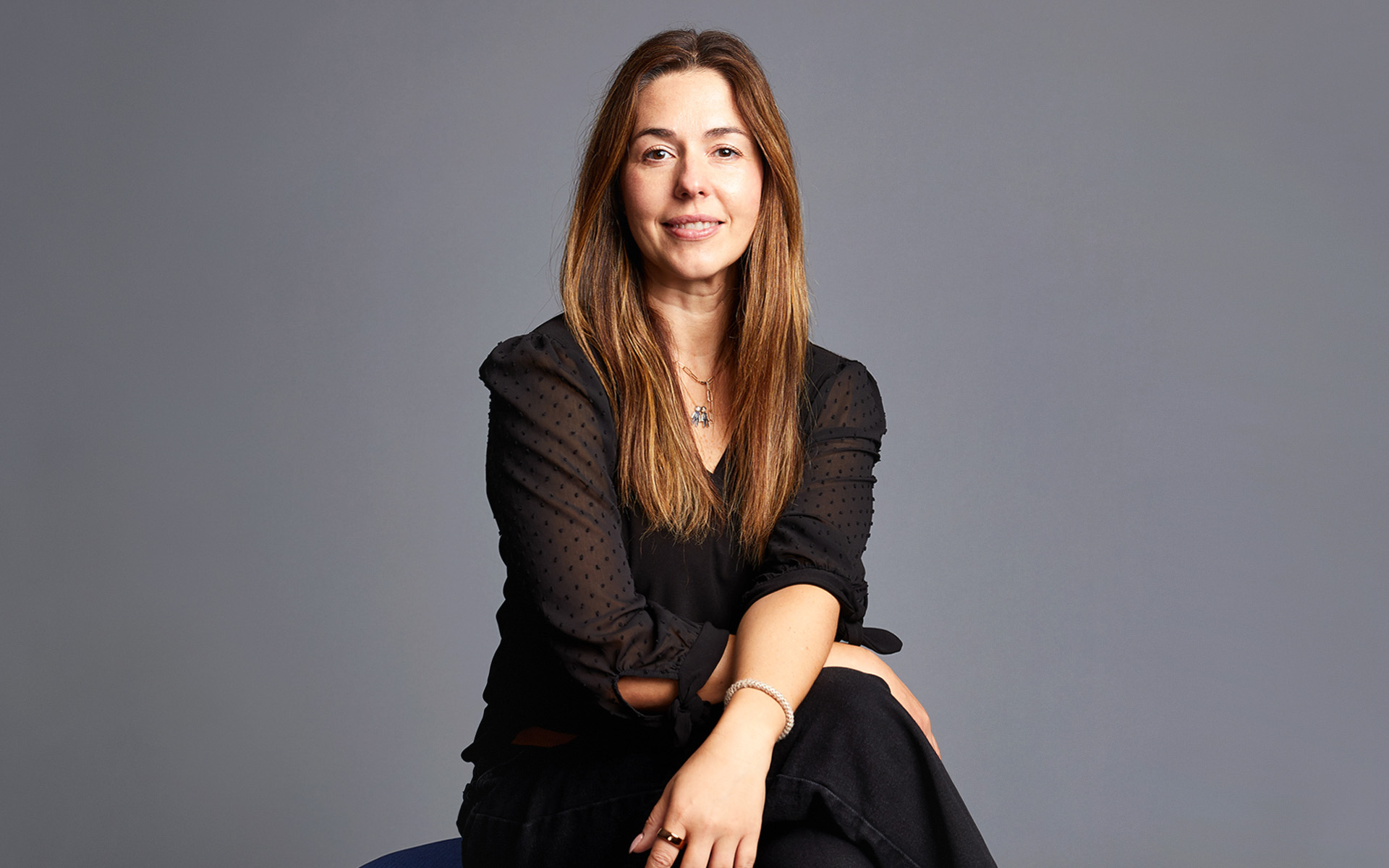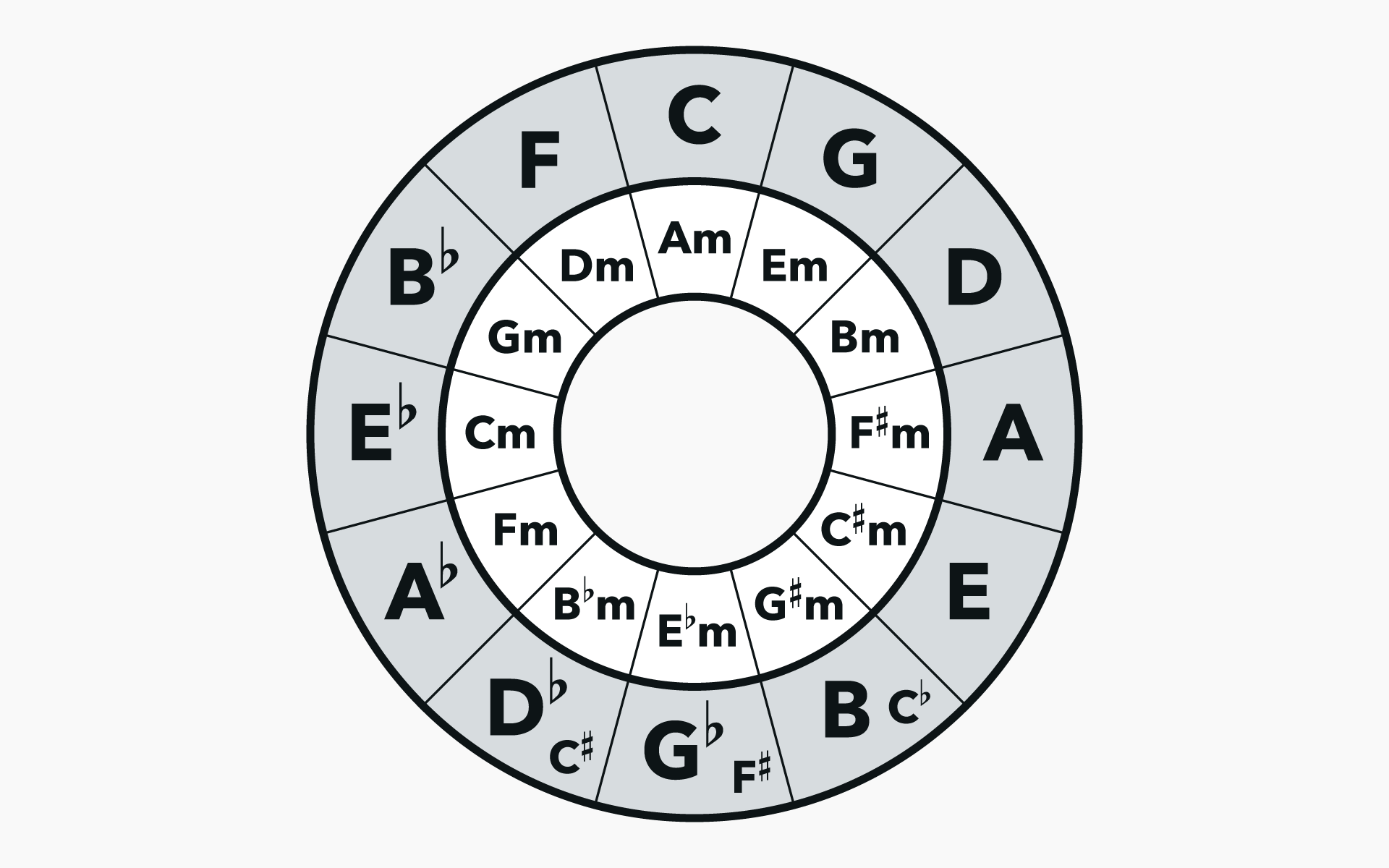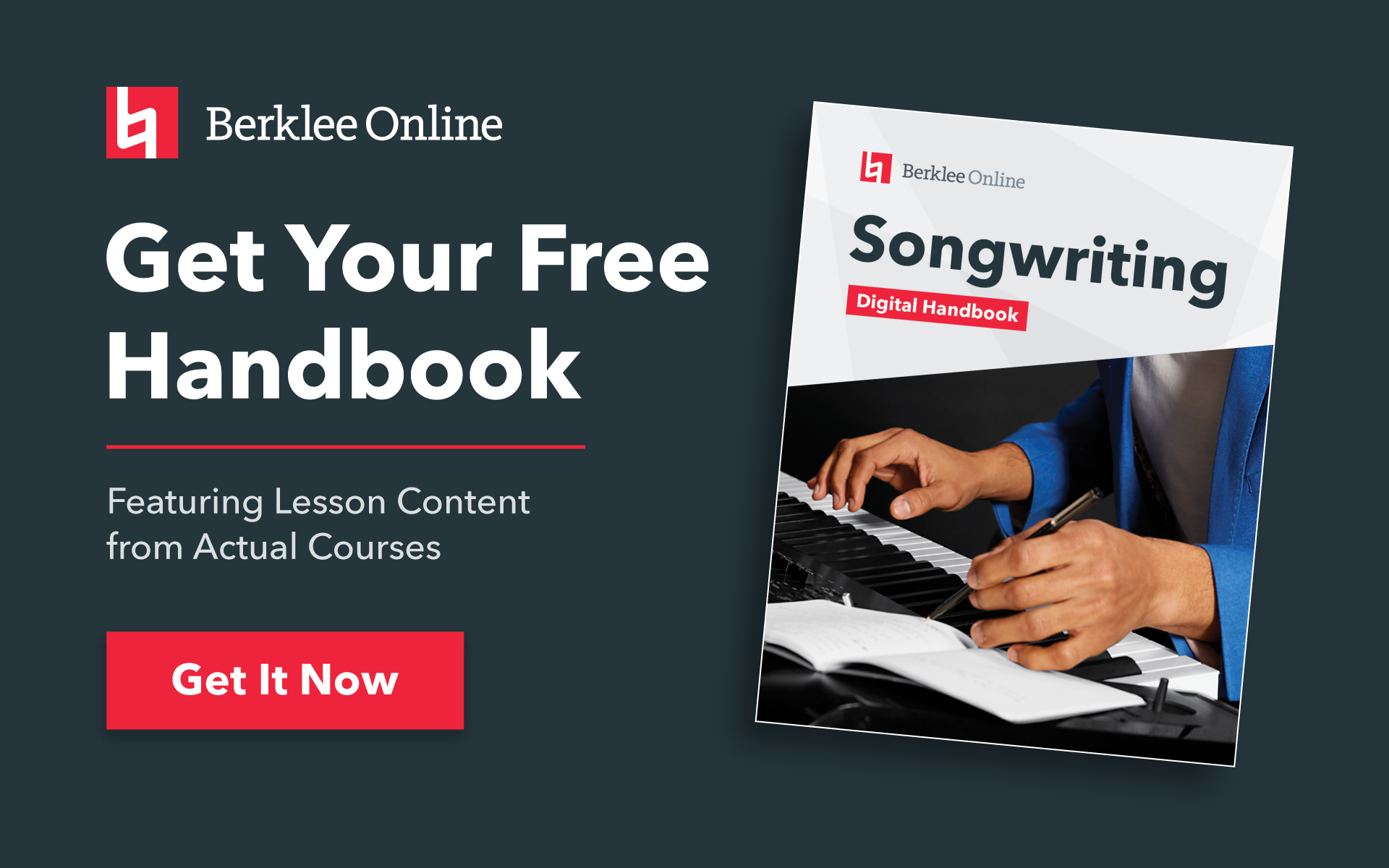I’ll be totally honest here. Much of what we singer-songwriters write and perform is a duplication of what has already been written and performed. Very few of us are devotedly trying to become truly unique. Very few songwriters are truly original in their take on a concept or their use of language, harmony, and melody. But that is all a process of becoming. Most of us want to contribute something valuable and unique to the market and our fans. If we didn’t, we’d simply be entertainers, not artists.
TAKE A SONGWRITING COURSE WITH ANDREA STOLPE
Most of us have heard the idea that we find our artistic voice only after writing many, many songs. I couldn’t agree more. However, if we fail to really observe ourselves, get honest about what we’re actually creating compared with what is out there to listen to already, we’re likely not realizing our full potential. The point of writing those first 200 songs is that through that process we exhaust the basics of what we create, after which we grow beyond what is our knee-jerk reaction to writing and performing.
What many artists don’t realize is that originality is not planned, but the product of fervent exploration leading to happy accidents. It’s when we take the folk style we’re comfortable writing and playing and add to it the influence of rock or country to arrive at a sound that resonates with who we are while putting a new spin on the genre. I hear many writers talk about a difficulty in defining what they create because they write in several different styles and genres. This is the beginning of the process of moving into originality, but it is only the beginning.
We can toy with different styles and genres, experiment with where our voice and our songs sound best, and gain knowledge about ourselves as artists. But it’s when those other styles begin to be second nature that we find threads of their rhythms, harmonic choices, melodic movements weaving through our initial writing and performance slant. This is a difficult concept to internalize, and one that most writers and performers never take in. We tend to stop reaching when we write a song that seems ‘perfect for Taylor Swift’ or ‘sounds just like John Mayer.’ The world already has a Taylor Swift and a John Mayer. We don’t need duplicates of them, we need one of you.
So how do we grow into originality? First, I believe we need to assess what we are actually creating. How do we assess what we are actually creating? We seek out other very competent musicians (and some who are better than we are) to coach us. Amongst those musicians in my circle fitting this description is an incredible producer who has vision where I do not. He hears my sound, and hears the holes in that sound. He wonders what it might be like if I began to play in the blues realm, adding that to my pop sensibility. He suggests artists to listen to outside my comfort zone that can expand my mind. He’s not a writer himself, but he has a bird’s-eye view that is absolutely invaluable to me as I assess where to grow next.
Second, we write six days a week, finishing songs and starting new ones continually until we’ve amassed a large enough catalog that we get a sense for our strengths and weaknesses. In my opinion, writers move to the recording stage much too soon. Write 50 songs and record rough work tapes of them all just after you finish writing each one. Then, take them all out and listen with objective ears. You’ll likely be a lot less attached to each one now that you have such a large group of songs from which to choose your favorites.
Third, we perform. It is by doing that we reach our ceilings, and doing some more that we grow past those ceilings.
I challenge you to reach for a level of artistry that you never before imagined was possible for you. Have a happy accident, exploring other genres on your instrument, your voice, with your writing. Listen to a lot of music, and learn what makes genres outside your preferred genre really tick. When you are able to see your weaknesses, you are able to see your strengths.
STUDY SONGWRITING WITH BERKLEE ONLINE








